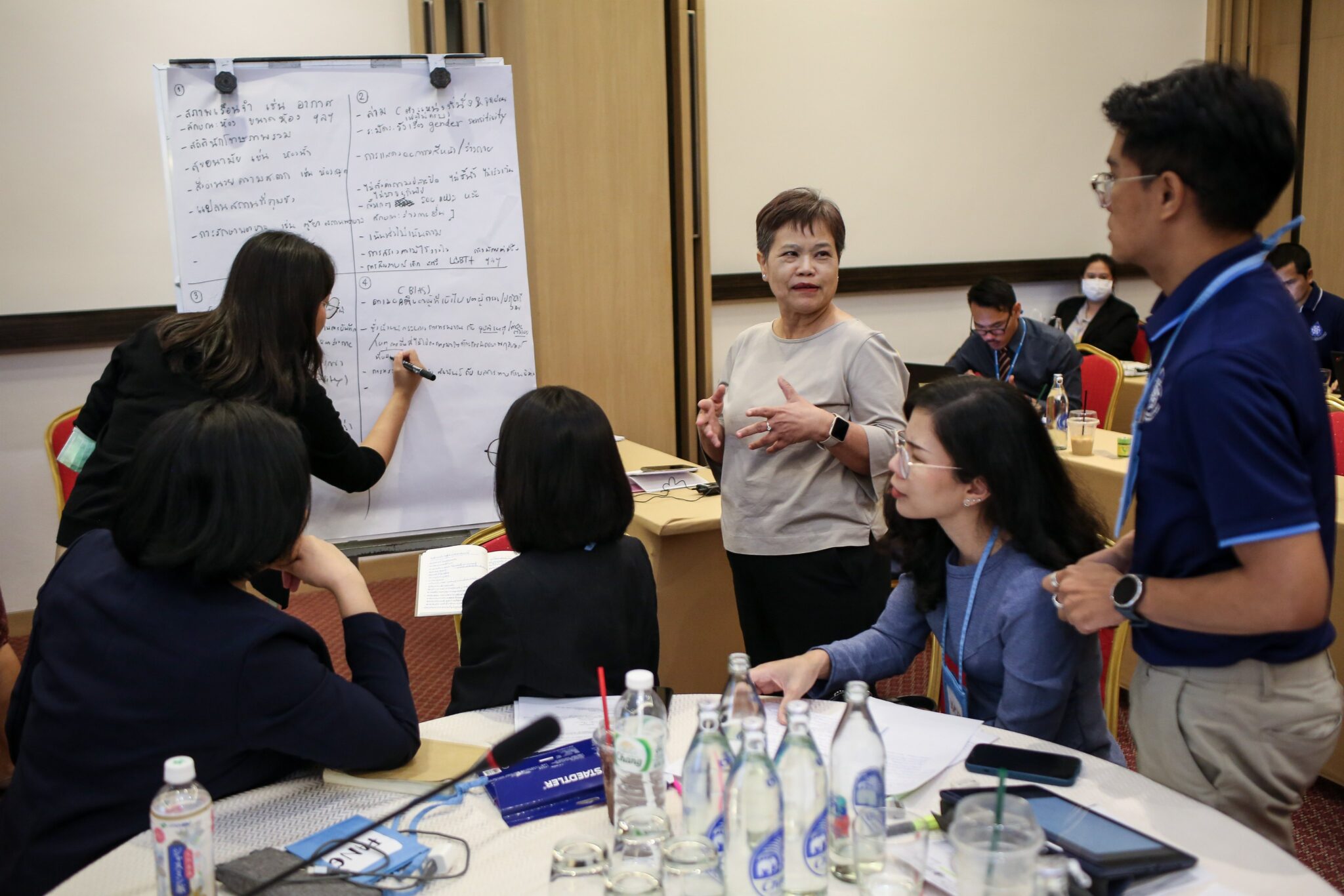Thai justice sector actors, government authorities, medical professionals, and officers of the National Human Rights Commission of Thailand (NHRCT) have undertaken discussions on how to improve and make effective investigations of torture, other ill-treatment, enforced disappearances and other serious human rights violations in line with international human rights standards during workshops co-hosted by the ICJ between 11 and 14 June 2024.
While similar workshops have been conducted by the ICJ and its partners in Thailand over the past decade, these workshops marked the first collaboration with Thai authorities to discuss this topic following the enter into force of the landmark Prevention and Suppression of Torture and Enforced Disappearance Act.
The workshops aimed to assist the responsible authorities by providing them with up to date knowledge and techniques for the implementation of international laws and standards that apply to legal and medical investigations into such human rights violations. These include the Manual on the Effective Investigation and Documentation of Torture and Other Cruel, Inhuman or Degrading Treatment or Punishment, known as the Istanbul Protocol, and the Minnesota Protocol on the Investigation of Potentially Unlawful Death, which also applies to suspected enforced disappearances.
More than 15 years after Thailand became a State Party to the UN Convention Against Torture and Other Cruel, Inhuman or Degrading Treatment or Punishment, the long-delayed Prevention and Suppression of Torture and Enforced Disappearance Act came into effect in February 2023. However, the Thai authorities have fallen short in implementing the Act, particularly in ensuring prompt, thorough, and effective investigations and prosecutions in cases of alleged torture and enforced disappearances. Only a single case of alleged ill-treatment has reached the court, while a few other cases were closed, particularly in cases of suspected enforced disappearance, due to the fate and whereabouts of the disappeared not yet being established due to insufficient evidence, which contrasts with the standards set out in both Protocols.
This workshop is part of the ICJ’s ongoing efforts to ensure the domestic implementation of international law and standards on the investigation of serious human rights violations.
Background
The first workshop, organized between 11 and 13 June 2024, was co-hosted with Thailand’s Ministry of Justice and the OHCHR, with the support of the EU Delegation to Thailand. The participants included 26 judges, public prosecutors, police investigators, forensic doctors, and representatives of the Ministry of Justice’s Department of Special Investigation (DSI) and Central Institute of Forensic Science, the National Anti-Corruption Commission (NACC), the Ministry of Defence, and the Internal Security Operations Command (ISOC).
The second workshop, held on 14 June 2024, was co-hosted with the Office of the NHRCT and the OHCHR, with the support of the EU Delegation to Thailand. The participants included 25 staff members of the NHRCT.
At the workshops, Sanhawan Srisod, Legal Adviser at the ICJ, presented a summary of the international human rights legal framework applicable to the investigation of unlawful deaths and enforced disappearances. She also introduced an outline of the revised Minnesota Protocol, which was launched in Thailand on 25 May 2017, and highlighted the role of authorities in ensuring that investigations and prosecutions in cases of alleged torture and enforced disappearances are prompt, thorough, effective, independent, impartial, and transparent.
Saovanee Kaewjullakarn, Legal Consultant at the ICJ, presented on best practices of the conduct of interviews with victims and survivors, including a number of issues and practical factors that have to be taken into consideration when a person who has allegedly been tortured or ill-treated is interviewed.
Other speakers included:
- Duarte Nuno Vieira, Full Professor of Forensic Medicine and Forensic Sciences and of Ethics and Medical Law, University of Coimbra
- Morris Tidball-Binz, UN Special Rapporteur on Extrajudicial, Summary, or Arbitrary Executions
- Nichapa Chanwisitkul, Human Rights Officer, United Nations Office of the High Commissioner for Human Rights (OHCHR)
- Somchai Homlaor, Senior Adviser, Cross-Cultural Foundation
- Thansuda Norkaew, Justice Officer, Senior Professional Level, Thailand’s Ministry of Justice
The 2016 revised Minnesota Protocol is a set of international guidelines for the investigation of suspicious deaths, particularly those in which the responsibility of a State is suspected, including enforced disappearances.
The 2022 revised Istanbul Protocol, outlines international legal standards and sets out specific guidelines on how to conduct effective legal and medical investigations into allegations of torture and ill-treatment.
The ICJ has held several workshops in Thailand on the same topic including:
- Workshop on the Investigation of Unlawful Deaths and Enforced Disappearance for Authorities from Thailand (2017)
- Workshop on the Investigation of Unlawful Deaths and Enforced Disappearance for Lawyers from Thailand and India (2017)
- First Regional Workshop on the Investigation of Unlawful Deaths and Enforced Disappearance in Asia for State authorities from Thailand, Cambodia, Myanmar and Nepal (2018)
- Second Regional Workshop on the Investigation of Unlawful Deaths and Enforced Disappearance in Asia for State authorities from Thailand, Cambodia and Myanmar (2018)
- Workshop on the Investigation of Unlawful Deaths and Enforced Disappearance for Authorities from Thailand (2019)
- Workshop on Interviewing Techniques and Standards for Authorities from Thailand (2019)
- Workshop on the Investigation of Unlawful Deaths and Enforced Disappearance for Authorities, Lawyers and Medical Professionals from Thailand’s southern border provinces (2020-2021)
- Workshop on Investigating Unlawful Killings and Torture for Authorities from Thailand (2021)
- Workshop on the Investigation of Unlawful Deaths and Enforced Disappearance for Lawyers (2024)





